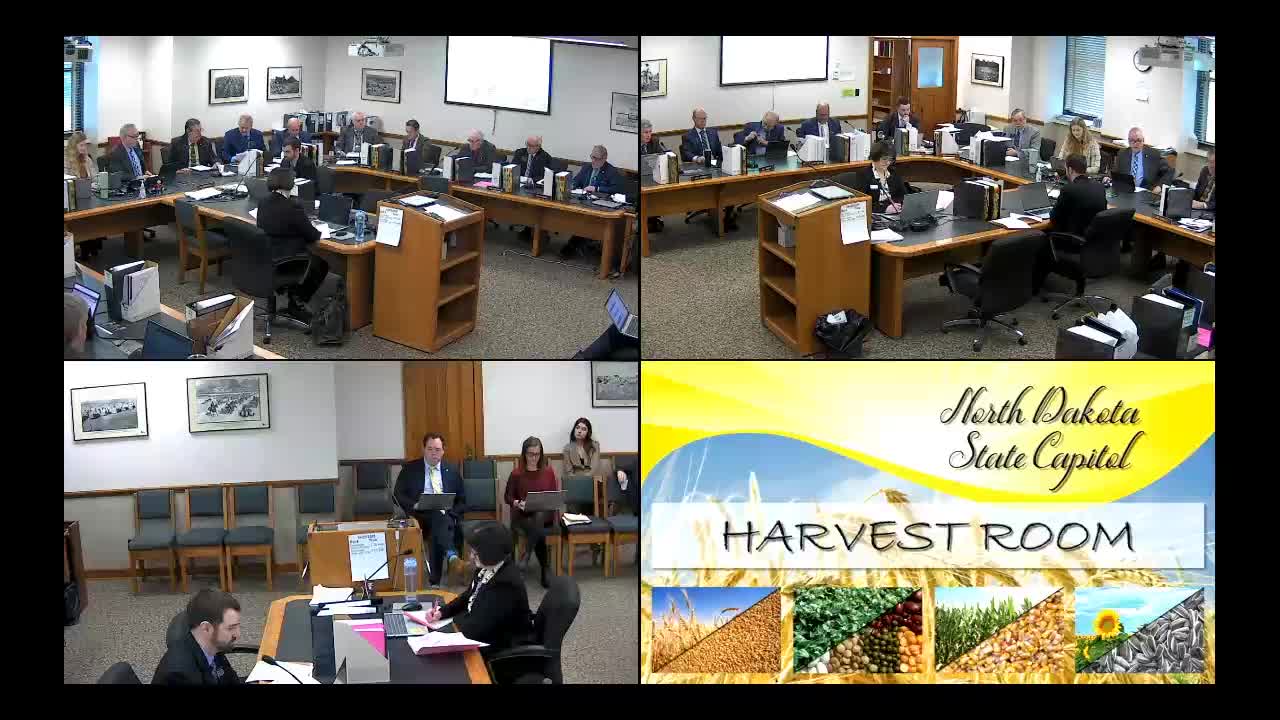Committee advances property-tax bill raising homeowner credit to $1,650, leaves school-cap issues unresolved
Get AI-powered insights, summaries, and transcripts
Subscribe
Summary
The Senate Appropriations Committee gave a do-pass recommendation to House Bill 1168 as amended, increasing the primary-residence property tax credit and expanding eligible levies, but left complex school-funding and 3% cap questions for conference committee work.
Bismarck ' The Senate Appropriations Committee on Thursday advanced House Bill 1168, a Senate vehicle for property-tax measures tied to the November ballot, raising the primary-residence credit and adjusting multiple technical provisions while leaving a contentious school-funding issue to conference deliberations.
The committee's amended bill raises the primary-residence credit from $1,250 to $1,650, retains a 'skin in the game' limit that caps the credit at 75% of a homeowner's tax bill, and expands the credit so it may be applied to voter-approved mill levies, including school bonds. The committee also aligned disabled-veterans true-and-full value language with current law by raising the exemption threshold in the bill from $180,000 to $200,000 true-and-full value and left the appropriation for the legacy fund at $398,400,000.
Why it matters: The changes will alter how much relief homeowners receive and accelerate state payments to counties so local governments are not left with cash shortfalls early in the year. Members pressed for clarity on how the cap interacts with school funding rules and how the changes would affect rural counties.
Committee members said sign-ups for the program exceeded earlier projections: the tax commissioner had estimated 65,000 eligible residences, while the sign-up count reported in committee was about 143,500, a factor that lowered the fiscal pressure per-enrollee and supported the credit increase. Staff explained the increased credit will require the state to accelerate county reimbursements earlier in the calendar year to avoid a funding gap between tax-collection dates and state payments.
Several senators focused on language that interacts with the school funding formula. Current law assumes a 60-mill local contribution when calculating state aid; the 3% cap on local mill increases could force mills below that 60-mill assumption, reducing local revenue and shifting cost to the state. Senator Shibley argued the simplest fix is to exempt the 60-mill local contribution from the 3% cap because the state requires that contribution via the funding formula. Others said that would increase state costs substantially; staff estimated one option could raise state spending by about $17 million per year (roughly $34 million per biennium).
Senator Magrum asked whether the 'skin in the game' 75% limit would disproportionately affect rural counties; committee staff said they lacked the detailed parcel-level data to perform a definitive geographic analysis.
After discussion, the committee approved a do-pass recommendation on HB1168 as amended. The transcript records the committee vote as "Motion passed 14 1 1." Senator Weber, who had led the tax committee work, will carry the bill in conference; members said outstanding school-cap and formula issues would be further negotiated in conference committee and the interim if necessary.
Less-critical detail: The amendment package also exempts townships from having to re-vote on cap increases at the general election if they already approved increases in their March annual meeting, and clarifies that the credit cannot be applied to special assessments. Committee members noted the bill includes a mechanism for the tax commissioner to request a deficiency appropriation from the legislature if estimated legacy-fund revenue falls short of the appropriation.
The committee adjourned after sending the bill to conference and reminded members to monitor upcoming conference schedules.
